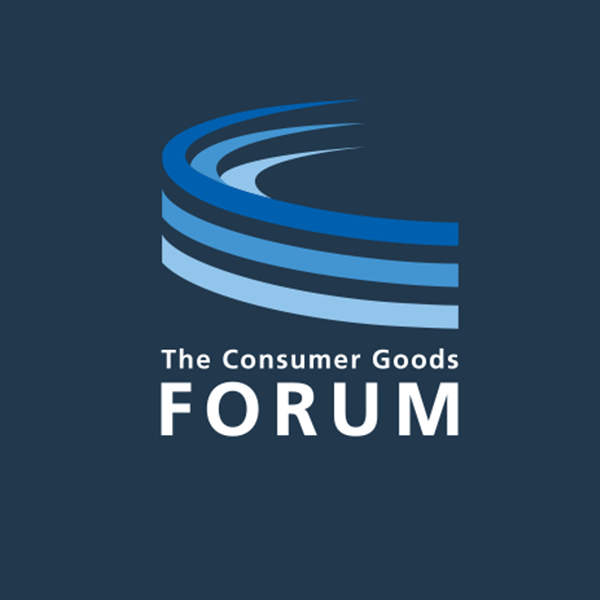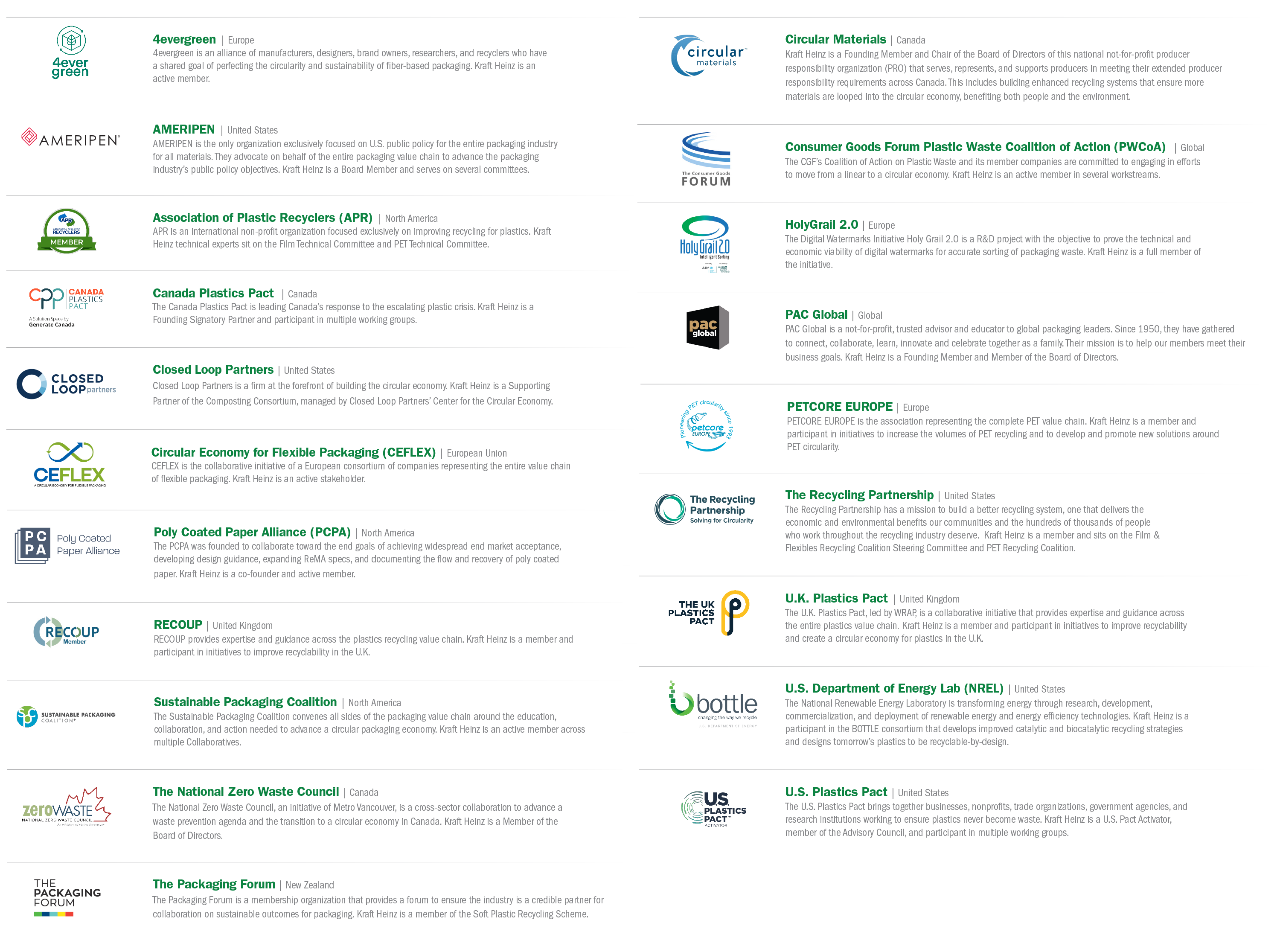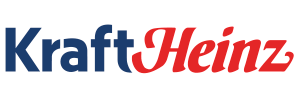Designing for Recyclability
We are designing our packaging to align with existing or expected future industry standards. For example, we are working to make our film and flexible portfolio ‘Designed for the Future of Recycling’ (DFR), meeting industry guidelines where relevant across the globe, like the Association of Plastic Recyclers (APR), the Consumer Goods Forum Plastic Waste Coalition of Action’s Golden Design Rules (GDRs), and Circular Economy for Flexible Packaging (CEFLEX). Additionally, we are investing and partnering externally across numerous organizations to help improve and develop critical recycling and composting infrastructure required for DFR.
In 2023, we became a founding member of the Circular Action Alliance (CAA), a 501(c)(3) nonprofit Producer Responsibility Organization (PRO) approved to implement Extended Producer Responsibility (EPR) laws for paper and packaging in California and Colorado. CAA intends to operate as a PRO in states that have enacted EPR laws for paper and packaging to deliver harmonized best-in-class compliance services, scale innovation, and build systems that help both companies and consumers waste less and recycle more.
We also joined the Consumer Goods Forum Plastic Waste Coalition of Action (PWCoA) and endorsed five of their Golden Design Rules. We continue to implement these rules internally to ensure that the packaging we produce aligns with industry best practices. We acknowledge that we are “all in the bin together” and organizations like Kraft Heinz need to partner across the value chain to lead the way on best practices in packaging design. We will continue to share progress towards alignment with the PWCoA design rules alongside other PWCoA member companies.
Kraft Heinz is a Supporting Partner of the Composting Consortium, an industry collaboration led by Closed Loop Partners’ Center for the Circular Economy. The Consortium recently released a groundbreaking report that fills a critical data gap for the U.S. composting industry. The report, Breaking It Down: The Realities of Compostable Packaging Disintegration in Composting Systems, shares findings from an 18-month study—the largest known field test of certified, food-contact compostable packaging conducted in North America—revealing the realities of compostable plastic and fiber disintegration in diverse in-field composting conditions.
Breakdown of Kraft Heinz’s Packaging Categories


Plastic Packaging Design: Consumer Goods Forum Golden Design Rules
Developed by the Consumer Goods Forum Plastic Waste Coalition of Action, the Golden Design Rules (GDRs) for packaging design are a set of voluntary, independent commitments, which together reach over 90 percent of plastic packaging available on the market and will create significant value for the industry and wider system. Kraft Heinz has endorsed five of the Golden Design Rules, including:
- Golden Design Rule #1: Increase recycling value in PET bottles
- Golden Design Rule #2: Remove problematic elements from packaging
- Golden Design Rule #5: Increase recycling value for PET thermoformed trays and other PET thermoformed packaging
- Golden Design Rule #6: Increase recycling value in flexible consumer packaging
- Golden Design Rule #7: Increase recycling value in rigid HDPE and PP
Global Plastics Industry Partnerships and Collaborations
At Kraft Heinz, we believe that collaboration is the backbone driving ESG progress. Many of our internal subject matter experts within the organization take on leadership roles in global, industry-wide coalitions to drive circularity across the packaging value chain.




